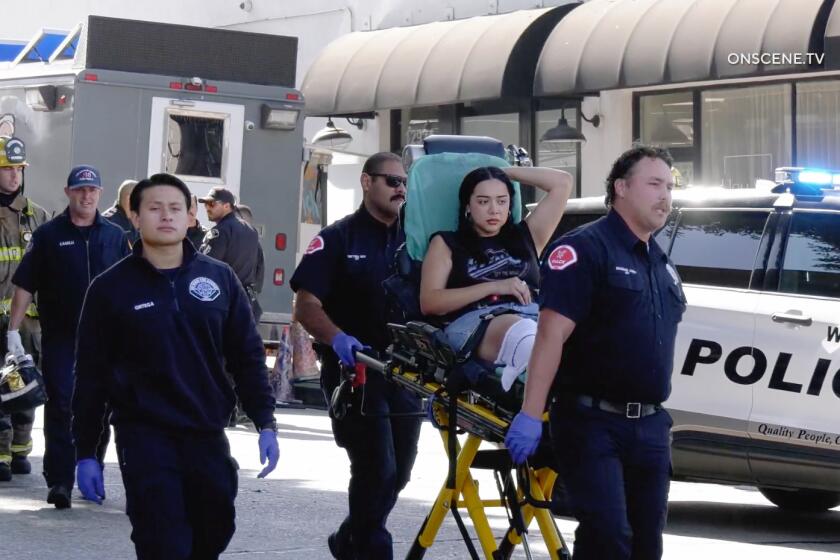Airlines, Boeing Defend Safety Record of the 737 Jetliner : Aerospace: More than 2,600 of the industry workhorses have been manufactured since their introduction in 1967.
Airlines with big fleets of Boeing 737 jetliners--the best-selling commercial aircraft in history--defended the plane’s safety Wednesday even as investigators remained baffled one week after a USAir 737-300 crashed in clear weather near Pittsburgh.
Pockets of the public remained less confident, however, as certain airline passengers continued asking not to be placed on 737s following the crash last Thursday, some travel agents said. But other agents said such calls ceased days ago.
“It’s real hit-and-miss,” said Thomas Nulty, president of Santa Ana-based Associated Travel Management, which has 100 offices nationwide.
While also defending the plane as safe, Boeing is trying to help find the crash’s mysterious cause by using data from the ill-fated plane’s flight data recorder and other information to re-create the flight on company simulators in Seattle and Renton, Wash., where the 737s are built.
The crash occurred when the jet, on a routine approach to the Pittsburgh airport, suddenly plunged from the sky and slammed into a wooded ravine. All 132 people on board were killed.
Investigators speculated early that the thrust of one engine might have been suddenly reversed, or that an engine might have broken loose. But closer inspections cast doubt on both theories, and authorities are again ruling nothing out.
Boeing has delivered more than 2,600 of the planes since their debut in 1967. Airlines covet the 737 because of its price ($30 million to $44 million), modest maintenance costs, fuel efficiency and reliability.
Each day, about 160 airlines use the aircraft for 17,000 flights worldwide. That widespread usage has increased the pressure on Boeing to help find the cause of the crash.
One Boeing insider, who asked not to be identified, said engineers there have concluded that “since there was no obvious, glaring cause, this was going to be a long and detailed investigation.”
He also said there was no sense among Boeing’s staff that the 737’s sterling reputation was in danger of being tarnished.
But an executive of a rival airplane manufacturer, who also requested anonymity, said that “there’s always a great emotional involvement” for an aircraft maker following such a disaster.
“It’s a stunner, no matter how many times you’ve been through it,” he said. “It’s a shock because we like to think we’ve built the best airplane we can, and when it goes wrong, that’s a hard kick. But then life goes on, and you have to focus on what went wrong.”
The USAir crash has not prompted Boeing to order any changes to existing 737s, nor have any Boeing customers canceled or otherwise altered their orders for the twin-engine plane, said spokesman Steve Thieme. About 380 of the jets are currently on order, he noted.
Two airlines with large 737 fleets, Southwest and United, both said they’ve made no changes related to the 737.
“We are operating status quo,” said Linda Rutherford, a spokeswoman for Dallas-based Southwest, whose 194-plane fleet is entirely 737s. Southwest, a low-cost specialist in flying short-hop routes, has never had a fatal crash in its 23-year history.
United, the nation’s largest carrier, has 227 of the jets, which account for 41% of its total fleet. Asked if United considers the plane unsafe, spokesman Joe Hopkins replied, “Not at all.”
Leo Janssens, president of the Aviation Safety Institute of Worthington, Ohio, said: “This is a tragic accident and, yes, it needs to be thoroughly investigated, but it’s an anomaly and is one of those one-in-a-million chances that is a risk of the industry.”
More to Read
Inside the business of entertainment
The Wide Shot brings you news, analysis and insights on everything from streaming wars to production — and what it all means for the future.
You may occasionally receive promotional content from the Los Angeles Times.







